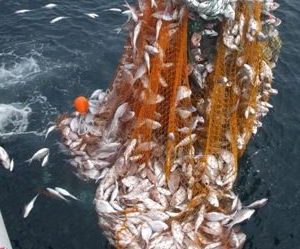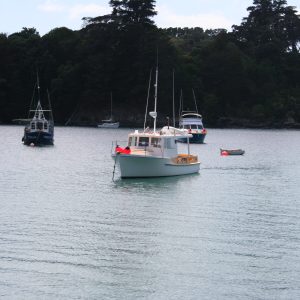“Only a crisis – actual or perceived – produces real change.” Milton Friedman.
The oft quoted definition of insanity is doing the same thing repeatedly and expecting a different result. Equally bizarre is the expectation that bulk harvesting our precious fish stocks will deliver the wealth and prosperity we need to get our economy back on its feet. A radical change in thinking and behaviour is required.

Now is our opportunity to change how we do things so our kids have a brighter, more sustainable future.
In 1986 New Zealand adopted an experimental regime called the quota management system. The objectives were to rebuild severely depleted inshore fisheries and make commercial fishing more viable. Theory being that if people had a stake in the fishery, a property right, they would nurture it back to health.
Over time the catching rights have been monopolised into fewer hands and the husbandry aspirations have been crushed under the weight of industrial trawl nets.
Consequently, we now have hard working commercial longliners paying $4.50 per kilo for bait while earning $4.30 a kilo for their catch.
It doesn’t stop there. Then we export our low value fish for commodity prices with no value added – bulk exports earning less than $3 per kilo for many species. Some companies even export jobs, sending product to China for processing before selling to markets, including New Zealand.
We can and must do better.
As we emerge from our COVID-19 bubble we must ramp up the expectation that our fish exports can deliver greater returns for our country and the hard-hit regional communities that are home to many of our small-scale fishermen.
Increasing catch rates and earning higher returns for each fish caught is achievable, if we recognise that the economic recovery of our seafood sector is dependent on having more abundant fisheries.
We need to institute policies that demand fish stocks are managed at much higher levels. For some fisheries this will mean a reduction in total catch and a restructuring of the fleet.
Adopting the quota management system in the 1980s was a bold move, especially for a little country like New Zealand. It promised much yet it has led to a number of perverse outcomes. One is that the QMS has been overused. Everything from hoki to knobbed whelks have quota for sale.
The big companies and investors will be looking for bargains over the next few months as the small operators get left behind and sell their quota shares or vessels. With fewer fishers on the water the trend will likely head towards an increase in bulk harvesting methods like trawling and set netting.
We need courageous leadership now
- We must ditch the quota management system to stop the nonsense of bulk commodity exports.
- The value from every precious fish caught needs to stay with the person who catches it, rather than being siphoned off by the quota investor.
- We need to create opportunities for the next generation of inshore commercial fishers. These are the young entrepreneurs and innovators who would love to nurture the environment while making a living from the sea.





